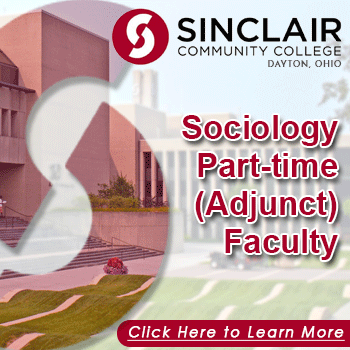This job has Expired
USDA-ARS SCINet/AI-COE Postdoctoral Fellowship in Using AI to Address Large, Complex Datasets in Microbiome-based Integrated Pest Management: Missouri
Job Description
- Agency
- U.S. Department of Agriculture (USDA)
- Location
- Colombia, Missouri
- Job Category
- Post Doctoral Appointments
- Salary
- TBD
- Last Date to Apply
- 01/05/2024
- Website
- https://www.zintellect.com/Opportunity/Details/USDA-ARS-SCINet-2023-0223
- Description
- *Applications are reviewed on a rolling basis. ARS Office/Lab and Location: A research opportunity is currently available within the US Department of Agriculture (USDA), Agricultural Research Service (ARS), at the Biological Control of Insects Research Laboratory located in Colombia, Missouri. The U.S. Department of Agriculture - Agricultural Research Service (USDA ARS) mission involves problem-solving research in the widely diverse food and agricultural areas encompassing plant production and protection; animal production and protection; natural resources and sustainable agricultural systems; and nutrition; food safety; and quality. The programs are conducted in 46 of the 50 States, Puerto Rico, and the U.S. Virgin Islands. For ARS to maintain its standing as a premier scientific organization, major investments in computing, networking, and storage infrastructure are required. Training in data and information management are integral to the integrity, security, and accessibility of research findings, results, and outcomes within the ARS research enterprise. Nearly 2000 scientists and postdoctoral fellows conduct research within the ARS research enterprise. Research Project: The SCINet/Big Data Research Participation Program of the USDA ARS offers research opportunities to motivated postdoctoral fellows interested in solving agriculture-related problems at a range of spatial and temporal scales, from the genome to the continent, and sub-daily to evolutionary time scales. One of the goals of the SCINet Initiative is to develop and apply new technologies, including AI and machine learning, to help solve complex agricultural problems that also depend on collaboration across scientific disciplines and geographic locations. In addition, many of these technologies rely on the synthesis, integration, and analysis of large, diverse datasets that benefit from high performance computing (HPC) clusters. The objective of this fellowship is to facilitate cross-disciplinary, cross-location research through collaborative research on problems of interest to each applicant and amenable to or requiring the HPC environment. Training will be provided in data science, scientific computing, AI/machine learning, and related topics as needed for the fellow to complete their research. The Kang laboratory is a part of the USDA Agricultural Research Service Biological Control of Insects Research Laboratory in Columbia, Missouri, and is affiliated with the Division of Biological Sciences at the University of Missouri. We investigate the utilization of microbiomes in the control of agricultural insect pests. We present an opportunity for a postdoctoral fellowship to join efforts combining artificial intelligence and statistical modeling techniques to investigate how the microbial community assembly negatively impacts the pest performance of Drosophila suzukii. The fellow will join efforts to examine the microbiome of insects to 1) characterize the microbial assembly and the competitive/ promotive interactions between microbes, 2) determine whether there are certain microbes under positive/negative selection, and 3) determine which microbial genes are associated with this selection. The Fellow will combine these analyses with AI to computationally isolate which microbes influence the pest performance and fitness of the flies and determine whether there are microbes in the community that promote or impede the presence of microbes that might be used in biocontrol. This will produce testable hypotheses for controlled microbial elimination/replacement experiments. Learning Objectives: The trainee will have opportunities to develop skills in microbiome science, genetics, molecular biology, statistics, ecological modeling, bioinformatics, and using artificial intelligence (machine learning and deep learning) in the analysis of microbiome ecological and shotgun metagenomic data. The fellow will have opportunities to research alongside several collaborators, present their research at professional conferences, publish their findings, and participate in artificial intelligence workshops hosted by USDA SciNet. Mentor(s): The mentors(s) for this opportunity is David Kang (dave.kang@usda.gov). If you have questions about the nature of the research, please contact the mentor(s). Anticipated Appointment Start Date: 2023; start date is flexible and will depend on a variety of factors. Appointment Length: Appointment length will initially be for two years but may be renewed upon recommendation of ARS and is contingent on the availability of funds. Level of Participation: The appointment is full-time. Participant Stipend: The participant will receive a monthly stipend commensurate with educational level and experience. Citizenship Requirements: This opportunity is available to U.S. citizens, Lawful Permanent Residents (LPR), and foreign nationals. Non-U.S. citizen applicants should refer to the Guidelines for Non-U.S. Citizens Details page of the program website for information about the valid immigration statuses that are acceptable for program participation. ORISE Information: This program, administered by ORAU through its contract with the U.S. Department of Energy (DOE) to manage the Oak Ridge Institute for Science and Education (ORISE), was established through an interagency agreement between DOE and ARS. Participants do not become employees of USDA, ARS, DOE or the program administrator, and there are no employment-related benefits. Proof of health insurance is required for participation in this program. Health insurance can be obtained through ORISE. The successful applicant(s) will be required to comply with Environmental, Safety and Health (ES&H) requirements of the hosting facility, including but not limited to, COVID-19 requirements (e.g., facial covering, physical distancing, testing, vaccination). Questions: Please visit our Program Website. After reading, if you have additional questions about the application process, please email ORISE.ARS.SCINet@orau.org and include the reference code for this opportunity.
- Qualifications
- The qualified candidate should have received a doctoral degree in one of the relevant fields or be currently pursuing the degree to be received before December 31, 2023. Preferred Skills: Machine learning and deep learning. Bioinformatics and statistics. Computational modeling. Molecular biology and genetics. Microbiology. Experience developing, testing, and refining machine learning models Experience developing HPC workflows Excellent written and oral communication skills. Experience in team and collaborative scientific environments.
- Contact Person
- ORISE.ARS.SCINet@orau.org
Bookmark the permalink .
*Please mention you saw this ad on AcademicJobs.*




